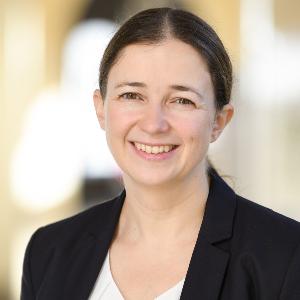Four new ERC grants for LMU
18 Jan 2024
Researchers have been awarded European Research Council (ERC) funding in conjunction with LMU.
18 Jan 2024
Researchers have been awarded European Research Council (ERC) funding in conjunction with LMU.
Professor Claudia Steinwender (Innovation and International Trade, Economics) has been awarded a lucrative Starting Grant by the European Research Council (ERC). As its criteria for Starting Grants, the ERC looks at the scientific excellence of the applicant and of the submitted project. The grants are considered one of the most prestigious research awards in Europe.
Professor Tim Liedl (Physics) is a past recipient of an ERC Consolidator Grant, while Professor Emiliano Cortés (Nanomaterials for Energy, Physics) and Professor Majid Zamani (Computer Science) are former recipients of a Starting Grant. Now the LMU scientists have been awarded an ERC Proof of Concept (PoC) Grant to build on their work. The PoC program helps researchers translate their research results into practice.

© LMU
Claudia Steinwender is Professor of Innovation and International Trade at the Department of Economics.
As key drivers of global economic growth, multinational corporations are responsible for about 30 percent of worldwide production. However, the economic output of foreign subsidiaries falls, the further away they are located from company headquarters. This pattern points to frictions that limit the economic growth that foreign direct investment can generate in host countries.
The reasons behind this phenomenon are little understood. In her ERC project MANDIST (Management at a Distance), Prof. Claudia Steinwender explores management problems at a distance as a possible explanation. It is reasonable to assume that principal-agent problems between the head office and the managers of foreign subsidiaries increase disproportionately when different countries, cultures, languages, and institutions are involved. However, so far there exists no systematic research of these issues and how they could be resolved.
In her project, Steinwender plans to focus on two possible solutions: employing managers with a connection to headquarters; and better monitoring of subsidiary managers via the use of information and communications technology (ICT). Drawing on new data sources and innovative empirical approaches, she intends to compile the first comprehensive datasets on managers and the use of ICT in multinational corporations. Moreover, she plans to investigate various channels via which principal-agent problems can affect economic growth at home and abroad.
Having studied mathematical economics and international business in Vienna, Claudia Steinwender worked for the management consulting company McKinsey & Co. After that, she completed her doctorate at the London School of Economics (LSE) and held research and teaching positions at Princeton University and Harvard Business School. In 2017, she became an assistant professor at Massachusetts Institute of Technology (MIT) before coming to LMU in 2021.

© LMU
In his research group at LMU’s Nano Institute Munich, Emiliano Cortés has developed a microscope that has a resolution of up to two nanometers and is capable of monitoring ultrafast surface processes on non-transparent materials under real operational conditions. The device could have a broad range of applications in many important sectors, such as the semiconductor industry, battery development and manufacturing, and green energy, where it is critical to visualize surface phenomena label-free and in real time.
This is where Cortés’s new ERC PoC project SURFLIGHT comes in, which has set itself the goal of bringing the remarkable optical microscope to market. The SURFLIGHT microscope is able to identify active sites on surfaces and nanomaterials, which are essential for catalytic reactions and solar energy conversion. This technology streamlines catalysis R&D by offering real-time visualizations, cutting costs, and optimizing catalyst utilization. Moreover, it minimizes the need for repetitive tests, conserving time and resources, while enhancing catalyst lifespans and reducing replacements through real-time monitoring of catalyst degradation under real-world conditions. This safeguards against large-scale process failures.
Cortés and his research group propose to carry out a thorough market analysis within SURFLIGHT. The team has already filled in two patents for this technology. Intensive dialog with academic and industrial partners will help nail down the industry’s demands and needs for the microscope, enabling the researchers to optimize the microscope and target specific customer sectors. This would allow SURFLIGHT to be brought rapidly to market and offered commercially to a wide range of industrial sectors.
Emiliano Cortés is Professor of Experimental Physics at LMU. This is not his first ERC award, having received a Starting Grant in 2018. He heads the Nanomaterials for Energy research group at LMU’s Nano Institute Munich. The physicist is also a member of the “e-conversion” cluster of excellence for researching the fundamentals of energy conversion processes, the Center for Nanoscience (CeNS), and the Bavarian Initiative for Solar Technologies (SolTech).

© LMU
Professor of Experimental Physics at LMU, Tim Liedl is a member of the Center for NanoScience (CeNS). He studies the application of DNA-based nanostructures in biology and in self-organizing optically active materials. As such, his multidisciplinary research operates at the interface between nanoscience and biophysics.
In 2022, counterfeit and pirated goods worth 119 billion euros were sold in the EU. Fake products present a major societal challenge in an increasingly globalized world with long supply chains. They also pose considerable safety risks, especially when it comes to sensitive goods such as pharmaceuticals. The WHO estimates that around 100,000 children under the age of five die every year having taken counterfeit medicines.
Security measures against counterfeit medical products include tamper-proof seals, serial numbers, RFID tags, optically variable inks, and holograms. However, current strategies to impede counterfeiting of genuine goods have often proved to be insufficient. Tim Liedl describes the situation as follows: “With current physical authentication tags, the features can be imitated.” The lack of a simple and robust method to verify the authenticity of a product causes huge economic and human damage.
Tim Liedl wants to solve this problem using nanotechnology. In the course of his newly funded project NanoPUF (Physical Unclonable Anticounterfeit Tags Using Nanotechnology), he plans to pave the way for the commercialization of non-copyable physical markers that are affixed to product packaging and can be authenticated using a 3D-printed wearable microscope. “Our work, which has progressed from a raw idea to a concrete prototype over the past few years, offers a counterfeit-proof, cheap, and reliable packaging solution. It can become part of supply chain logistics for everything from pharmaceuticals to luxury goods – and could potentially even be used on banknotes,” says Liedl.

© LMU
Majid Zamani is a visiting professor at LMU’s Institute of Informatics. In addition, he is an Associate Professor in the Computer Science Department at the University of Colorado Boulder in the United States.
Autonomous driving is a key technology of the 21st century. However, the implementation of safe and reliable control software remains a critical challenge for car manufacturers before fully autonomous vehicles become a reality. The current lack of reliability in software is mainly attributed to the absence of formal correctness, which can lead to ambiguity and false implementations. Furthermore, human factors and limited testing scenarios increase the likelihood of errors and leave many edge cases untested. As well as leading to accidents, this has undermined public trust in autonomous vehicles and impeded further development.
Leveraging his AutoCPS project, which was awarded as an ERC Starting Grant, Prof. Majid Zamani proposes in his Proof-of-Concept project CertiCar (Automated Synthesis of Certifiable Control Software for Autonomous Vehicles) to automate the generation of control software and develop robust, reliable, and formally correct software for the automotive industry. A reliable advanced collision avoidance system (ACAS) is a fundamental requirement for future autonomous vehicles. CertiCar aims to provide a correct-by-design ACAS with guaranteed correctness. In addition to promising safe vehicle control, this could reduce testing times by several orders of magnitude and represents a significant step toward development of a complete software stack for certifiable autonomous cars.
In 2012, Majid Zamani obtained a doctorate in electrical engineering and an MA in mathematics from the University of California, Los Angeles. Subsequently, he worked at Delft University of Technology and the Technical University of Munich, before taking up a guest professorship at LMU and a professorship at the University of Colorado Boulder in 2019.